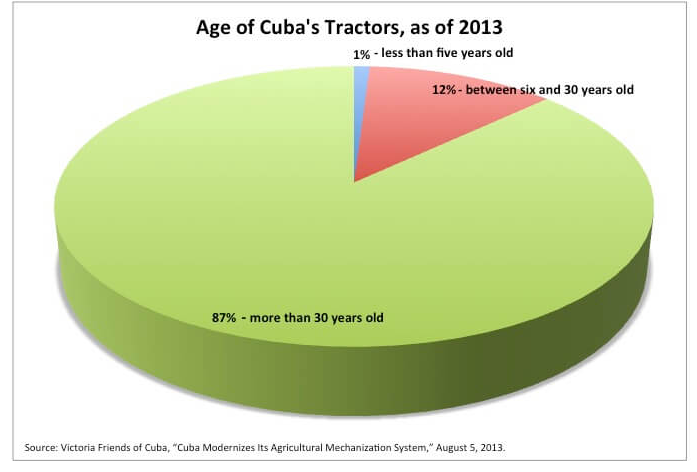Cuba Standard, February 10, 2017
Original Article: OXEN
The collapse of the Soviet Union hit the Cuban economy severely. The island nation lost approximately 80% of its imports, 80% of its exports and its Gross Domestic Product dropped by a third, virtually overnight.
Entirely dependent on fossil fuels to operate, the major buttresses of Cuban society – its transport, industrial and agricultural systems – were frozen. There were extensive losses of productivity in both Cuban agriculture – which was dominated by Soviet modern industrial tractors, combines, and harvesters, all of which required petroleum to run – and in Cuban industrial capacity.
As a result, animals returned to the agriculture scene, and ox, in particular, carried most of the farming burden in the slow recovery that lasted until the last 1990s. After the hurricanes of 2008 (Hurricane Ike, Hurricane Gustav, Tropical Storm Fay), Raul Castro cited ox as essential for recovery. “For this program we should forget about tractors and fuel, even if we had enough. The idea is to work basically with oxen,” Castro told parliament August 1, 2008. “An increasing number of growers have been doing exactly this with excellent results.”
Cuba imports most of its agricultural machinery and is in need of high quality, consistent machinery and spare parts. Cuban imports of agricultural machinery rose from $11.4 million in 2005 to a peak of $92.8 million in 2013 before falling to $57.5 million in 2014. In 2014, Brazil was the leading supplier of agricultural machinery to Cuba, followed by the EU (largely Spain and Italy).
The Cuban drivers for increased imports of agricultural machinery have been the need to improve agricultural performance and reduce reliance on imported agricultural products. Nonetheless, any attempts by Cuba’s agricultural sector to replace its old and obsolete agricultural machinery are making slow progress. In 2013, approximately 1% of Cuba’s 66,128 tractors were less than five years old, nearly 12 percent were between 6 and 30 years old, and 87% were more than three decades old.










